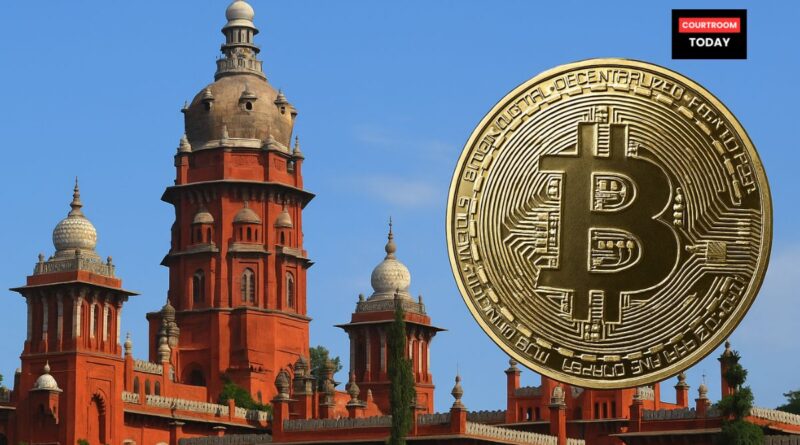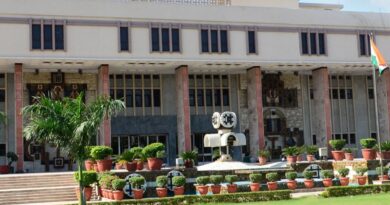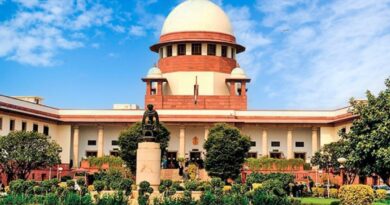Madras High Court Declares Cryptocurrency as Property Under Indian Law
In a significant ruling, the Madras High Court has recognised cryptocurrency as property under Indian law, stating that it can be owned, enjoyed, and even held in trust. The decision came from Justice N Anand Venkatesh while hearing Rhutikumari v. Zanmai Labs Pvt Ltd, a case involving the crypto exchange WazirX.
Crypto is Property, Not Currency
The Court clarified that although cryptocurrency is not legal tender and has no physical form, it possesses all characteristics of property.
“Crypto currency is a property. It is not tangible or legal tender, but it can be enjoyed, possessed, and held in trust,” the Court said.
This marks one of the first judicial recognitions of crypto assets as property in India, providing clarity for investors and exchanges operating in an uncertain regulatory space.
The Case: Investor vs WazirX
The case was filed by an investor whose XRP holdings on WazirX were frozen following a cyberattack in 2024.
- The petitioner had invested ₹1,98,516 in January 2024 to purchase 3,532.30 XRP coins through WazirX, operated by Zanmai Labs Pvt Ltd.
- In July 2024, WazirX reported a major security breach that led to the loss of Ethereum (ETH) and other ERC-20 tokens worth around US$230 million.
- As a precaution, all user accounts were frozen, including that of the petitioner.
The petitioner argued that her XRP assets were different from the stolen tokens and were held by WazirX as a custodian in trust, seeking an injunction under Section 9 of the Arbitration and Conciliation Act, 1996 to prevent redistribution of her portfolio.
Respondent’s Argument
Zanmai Labs and its directors, including Nischal Shetty, opposed the plea. They stated that their Singapore-based parent company, Zettai Pte Ltd, was already undergoing restructuring approved by the Singapore High Court, under which users were required to share losses pro-rata.
They also claimed that Zanmai Labs handled only the INR leg of crypto transactions, while actual wallet control rested with Zettai.
Court’s Findings: Crypto Fits Legal Definition of Property
Justice Venkatesh devoted a detailed section of the 54-page judgment to explain why cryptocurrency qualifies as “property.”
He observed that even though cryptocurrencies are digital data stored on a blockchain, they have:
- Definable and identifiable characteristics
- Transferability through transactions
- Exclusive control via private keys
These features make them capable of being owned and transferred, fulfilling the legal requirements of property under Indian jurisprudence.
The Court referred to earlier Indian rulings such as Ahmed GH Ariff v. CWT and Jilubhai Nanbhai Khachar v. State of Gujarat, which describe property as “every species of valuable right and interest.”
It also cited international precedents like Ruscoe v. Cryptopia Ltd (New Zealand) and AA v. Persons Unknown (UK), where cryptocurrencies were held to be property capable of being held in trust.
Recognition Under Indian Tax Law
The Court noted that Indian law already acknowledges cryptocurrencies as Virtual Digital Assets (VDAs) under Section 2(47A) of the Income Tax Act, 1961.
“In India, crypto currency is treated as a virtual digital asset and not a speculative transaction,” the judgment stated.
Madras High Court’s Jurisdiction Upheld
The respondents contended that since arbitration was seated in Singapore, Indian courts had no jurisdiction.
However, the Court, relying on the Supreme Court ruling in PASL Wind Solutions Pvt Ltd v. GE Power Conversion India Pvt Ltd (2021), held that Indian courts can grant interim protection under Section 9 if the assets are situated in India.
Because the petitioner had transferred funds from Chennai and accessed the WazirX platform from India, a part of the cause of action arose within the Madras High Court’s territorial limits.
Domestic Nexus Strengthened
Justice Venkatesh pointed out that Zanmai Labs is a registered reporting entity with India’s Financial Intelligence Unit (FIU), unlike Zettai Pte Ltd (Singapore) and Binance, which are not authorised to operate in India.
This, the Court said, further confirmed the Indian jurisdiction over the matter.
Applicant’s Assets Were Distinct
The Court concluded that the petitioner’s XRP holdings were unaffected by the July 2024 cyberattack, which targeted ERC-20 tokens.
“What were held by the applicant were XRP coins. What were attacked were ERC-20 tokens—completely different cryptocurrencies,” the Court said.
Therefore, applying Singapore’s restructuring scheme to her unaffected assets was unsustainable.
Interim Protection Granted
Recognising the petitioner’s vulnerability, the Court granted interim protection, restraining Zanmai Labs and its directors from redistributing or reallocating her assets until the arbitral tribunal decides the dispute.
“If the applicant’s assets stand eroded due to the Singapore scheme, she becomes a vulnerable party entitled to protection,” the Court observed.
Representation
- Applicant: Advocate D Ravichander
- WazirX: Senior Advocate Satish Parasaran with Advocate Vishnu Mohan
- Other Directors: Advocate Aditya Reddy





